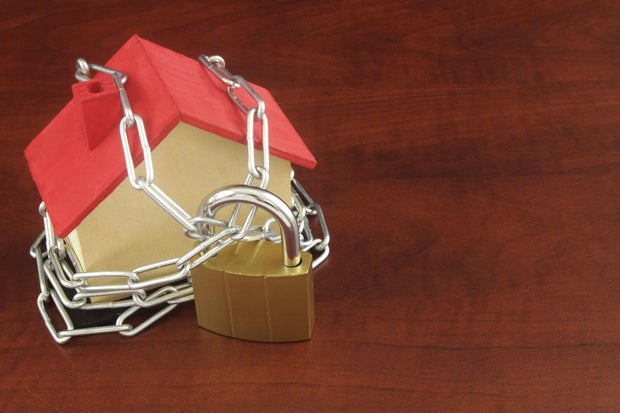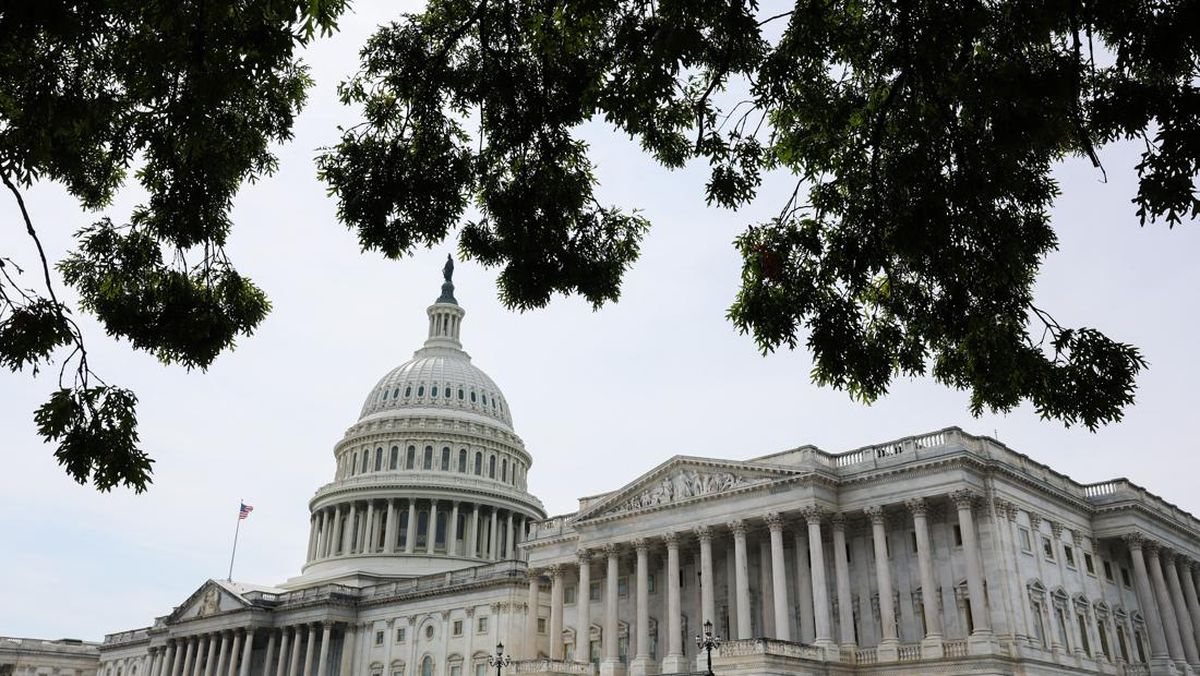 There are significant pros and cons to locking in a mortgage rate before the Fed's October meeting.
Getty Images/iStockphoto
There are significant pros and cons to locking in a mortgage rate before the Fed's October meeting.
Getty Images/iStockphoto
There's been some surprisingly good news in the mortgage rate climate this year.
Not only are mortgage rates significantly lower than the approximate 7% they were hovering near in January, but they're potentially positioned to fall even further in the weeks ahead. A Federal Reserve rate cut in September caused mortgage rates to temporarily drop a three-year low in the month. But with additional cuts largely expected for the Fed's next meetings in October and December, rates here could soon fall again.
But "could" doesn't mean definitely. And, if there's one thing homebuyers and homeowners looking to refinance can agree upon after the last few years, it is that there are no guarantees in the mortgage market. Understanding this dynamic, there's a natural temptation on behalf of buyers to lock in a low 6% mortgage rate now, while still readily available. But that may not be the right move for every homebuyer or even most. There are pros and cons to closely consider before taking action. Below, we'll break down four primary ones to think about now.
Start by seeing how low your current mortgage rate offers are here.
Pros and cons of locking a mortgage rate before the October Fed meeting
Don't take any hasty action one way or another before first evaluating these four timely mortgage rate lock pros and cons:
Pro: The rate won't go any higher
Today's average mortgage rate of 6.33% on a 30-year mortgage may not seem cheap now, especially compared to the approximate 2% range these rates were at the start of the decade. But it could be the more affordable option, perhaps sooner than it now seems. By locking in this rate now, buyers won't need to worry about any number of influencing factors that can cause rates to spike again. And recent history underscores the benefit of taking action now. In September 2024, for example, mortgage rates plunged to a two-year low following a then-Fed rate cut only to surge again in the weeks after amid disappointing economic data releases. If you want to avoid that very realistic scenario from happening again, then it may make sense to lock in a rate now.
Compare your available mortgage rates and terms online now.
Con: Rates look likely to fall further
The chances of Fed rate cuts at the central bank's final two 2025 meetings now stand at over 98% each. And if those are issued, mortgage rates will likely fall further. Locking in a rate now, then, could mean missing out on additional savings opportunities. But delaying is risky too. There's no guarantee that Fed rate cuts will be issued, and there's less of a guarantee that they'll have a material impact on mortgage rates, especially if lenders have already started "pricing in" these cuts preemptively. Be strategic in your approach, then, but also be realistic about how much you can really save by delaying.
Pro: You can start budgeting and house hunting with confidence
By locking in one of today's lower mortgage rates, you can proceed to the next steps of budgeting and house hunting with confidence, as you'll be able to precisely determine your costs. House hunting is stressful enough, especially in today's economy, with inflation still problematic and everyday expenses elevated. With the holiday season just weeks away, too, it's not an ideal time to be purchasing a home. But a mortgage rate, at least, will be one less item to worry about once locked in.
Con: Unlocking the rate may come at a cost
Locking in a rate now only to unlock it in the future, should rates drop again, won't necessarily be easy. And it almost certainly won't be free, as many lenders charge a "float down" fee to borrowers looking to secure a better rate. Take the time, then, to determine what this will cost exactly (or if it even applies to the lender you want to use). This charge can go a long way toward determining the value of a mortgage rate lock now.
The bottom line
There are obvious pros and cons to locking in a mortgage interest rate in today's evolving climate. Do your due diligence, then, to understand each carefully. There's no right or wrong approach here as the benefits of a lock or the benefits of a delay largely depend on the borrower in question. Consider speaking with a mortgage lender, too, who can answer any questions you may have and help point you in a direction that makes the most sense for you.
Edited by Angelica Leicht


















































